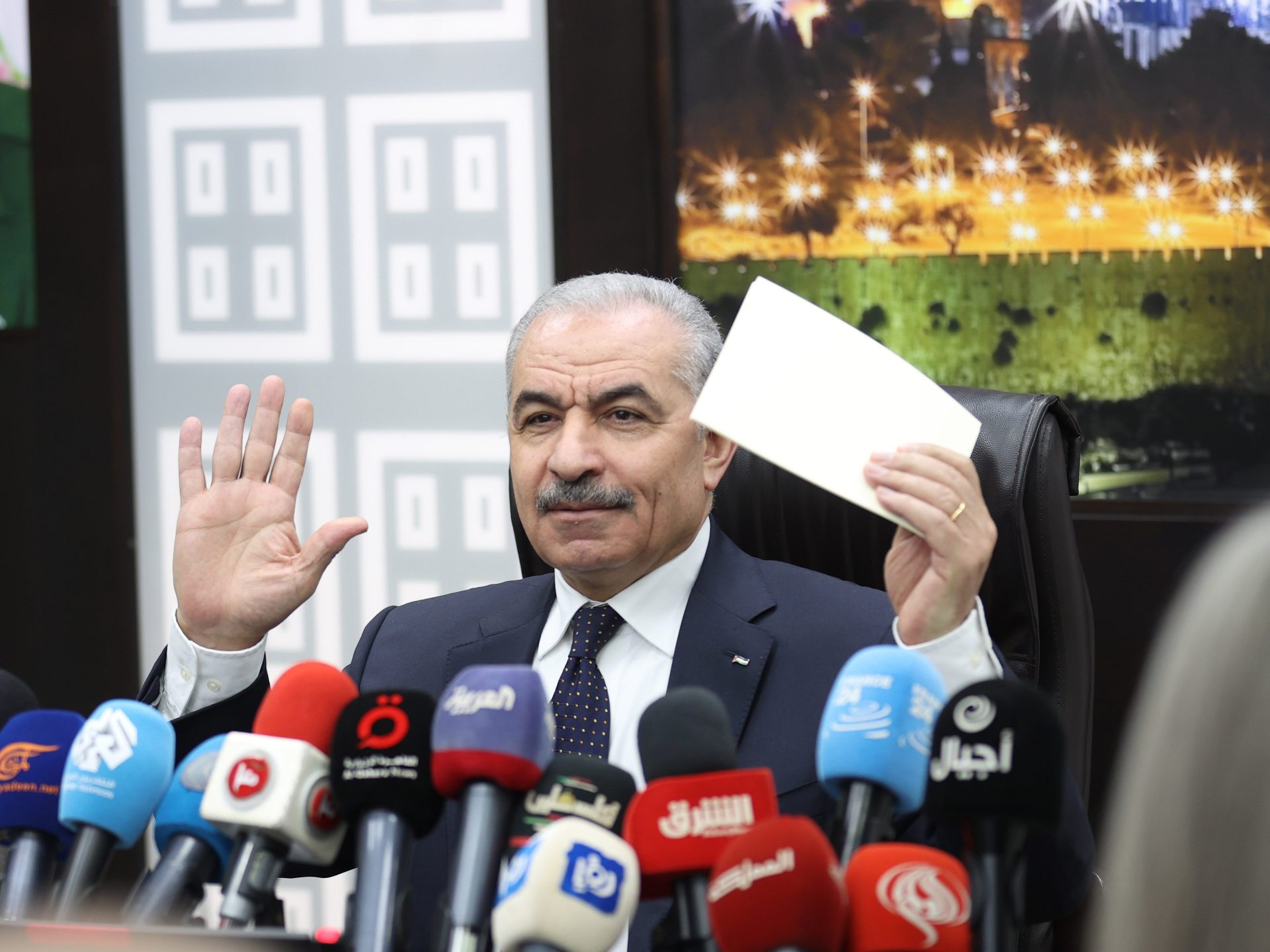Muhammad Shtayyeh announces his resignation at the Palestinian government session on Monday, February 26 (Palestinian Prime Minister’s Office)
An article on the American Fox website commented on the reason for the dissolution of the Palestinian Authority government and the resignation of its Prime Minister, Muhammad Shtayyeh, on Monday, indicating that Shtayyeh’s decision may not have much weight in the face of a “fossilized organization,” led by 88-year-old President Mahmoud Abbas, which faces a future. Mysterious after the war in Gaza.
The author of the article, Elaine Iwanes, stated that the strength and legitimacy of the Palestinian Authority in the eyes of the Palestinians has weakened due to a combination of corrupt leadership, Israeli aggression, expansionist policies, and the power struggle between the Palestinian Authority and Hamas.
She added that Shtayyeh's resignation appears to be a step towards responding to international pressure, and as he told his government on Monday that "the next stage and its challenges require new governmental and political arrangements that take into account the new reality in the Gaza Strip... and the urgent need for a Palestinian (national) consensus," and the expansion of (the Palestinian Authority) Over the entire territory of Palestine, according to the British Financial Times.
The author believes that his resignation will not necessarily lead to the changes desired by external and internal stakeholders, and there is no indication when the current Israeli war in Gaza will end, or what will happen to those who live there when it ends.
Technocratic government
While Shtayyeh's resignation may signal an acknowledgment that Palestinian representation must change, it likely does not mean any fundamental change in the short term, either for the Palestinian Authority or for the Palestinian people in general.
The writer continued that it is possible, then, that Shtayyeh’s resignation came at the request of Abbas so that he could at least appear responsive to the demand for change that comes from several fronts, internally and externally.
It is also worth noting that the resignation comes ahead of planned negotiations to form a national unity government between Fatah and Hamas this week in Moscow.
Under these circumstances, as the author says, his resignation can be read as a gesture to the Hamas leadership, but “the resignation of the Shtayyeh government has no meaning unless it comes in the context of the national consensus on the arrangements for the next stage,” as Sami Abu Zuhri, a leader in Hamas, told Reuters. Monday.
The article pointed out what John Alterman, director of the Middle East Program at the Center for Strategic and International Studies, told Vox, “The issue was and continues to be Abbas, not Shtayyeh.”
Even if the Palestinian Authority forms a new technocratic government, as the United States and Arab countries want, “most of the bureaucrats will remain as they are.”
The article concluded that although the United States and other external stakeholders hope that the dissolution of the Palestinian Authority government will provide the change they hope for for future governance of the Palestinian territories, many of the major obstacles go beyond the internal politics of the Palestinian Authority, not the least of which is Israel’s opposition to PA intervention in a scenario. After the war.
Arab countries that can finance the reconstruction of Gaza will not do so without a clear path towards establishing a future Palestinian state.
Source: Fox

